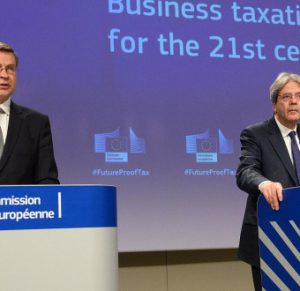

136 countries except Nigeria, Pakistan, Sri Lanka and Pakistan agree to 15% tax rate for multinational companies
A group of 136 countries have agreed to a global treaty that would tax multinational companies at a minimum rate of 15% and require companies to pay taxes in the countries where they do business.
Estonia, Hungary Ireland joined the previous 133 countries this week after deliberating on the documents which is now supported by all nations in the Organization for Economic Cooperation and Development and the G20.
Four countries that participated in the talks namely Kenya, Nigeria, Pakistan and Sri Lanka have not yet joined the agreement.
The countries that signed on to the international treaty represent more than 90% of global GDP.
The US fostered the global initiative earlier this year after getting support of the G7 countries in June, before a preliminary deal in July but Irelandcl with a corporate tax rate of 12.5% declined to join the initial agreement in July.
Ireland’s corporate tax rate of 12.5% has been a major factor in persuading companies such as Facebook (FB), Apple (AAPL) and Google (GOOGL) to locate their European headquarters in the country.
But on Friday, October 8, Ireland agreed to join the deal. Ireland signed up after the preliminary agreement was revised to remove a stipulation that rates should be set at a minimum of “at least 15%.”
“Today’s agreement will make our international tax arrangements fairer and work better,” said OECD Secretary-General Mathias Cormann in a statement.
“This is a major victory for effective and balanced multilateralism.”
“We have secured the removal of ‘at least’ in the text,” Irish Finance Minister Paschal Donohoe said in a statement.
“This will provide the critical certainty for government and industry and will provide the long-term stability and certainty to business in the context of investment decisions.”
Alongside a minimum corporate tax rate, the pact includes provisions to ensure that multinational companies pay tax where they generate sales and profits, and not just where they have a physical presence with companies like Google, Amazon (AMZN), Twitter and Facebook the main companies to suffer from the new arrangement.
The OECD expects implementation of the agreement to begin in 2023 but the deal still requires countries to pass domestic legislation.
“Like the Paris Agreement on climate, concluding technical talks after firming political support was the easier part, implementing the pact will prove significantly more challenging,” analysts at political risk consultancy Eurasia Group wrote in a note this week.


Leave a Reply